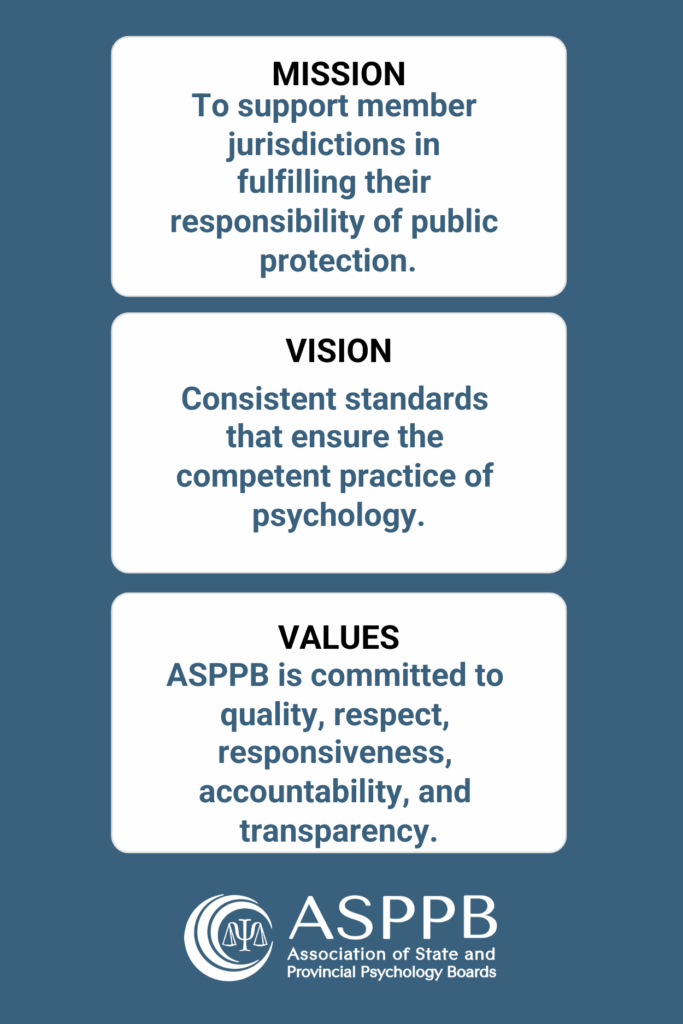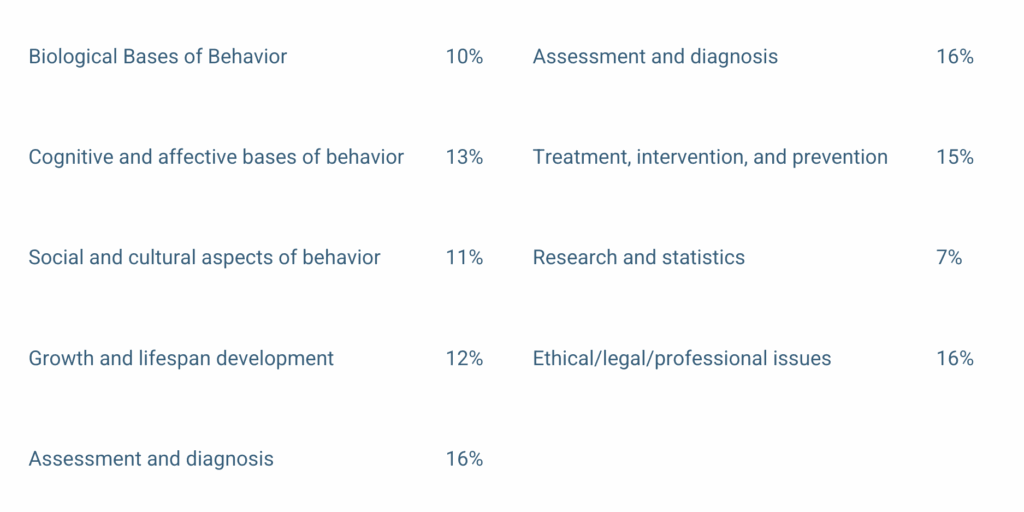Pursuing Licensure in Psychology?

Understanding the Five Building Blocks to Success
Pursuing psychology licensure is a multi-step process that involves education, training, supervised experience, and passing specific exams. Depending on the state, territory, or province, the process can vary. The academic requirements for licensure in the United States and registration in Canada, as well as the role of organizations associated with the process, can help candidates navigate the process and increase their chances of success. Here are five building blocks to success:
ONE: Organizations Supporting Psychology Students, Professionals, and the Public
Association of State and Provincial Psychology Boards (ASPPB)
ASPPB is an alliance of state, provincial, and territorial agencies responsible for the licensure and registration of psychologists throughout the United States and Canada. Jurisdictions formed the association 65 years ago to serve psychology boards in the United States and Colleges in Canada. Currently, the psychology boards of all 50 states, the District of Columbia, the U.S. Virgin Islands, Puerto Rico, Guam, the Commonwealth of the Northern Mariana Islands, and ten provinces and the Northwest territory of Canada are members of ASPPB.
There are differences between a Psychological Association, a Psychology Professional Organization, and a Psychology Licensing Board.
A Psychological Association pertains to state and provincial professional affairs. In contrast, Psychology Licensing Boards in the U.S. and Canada regulate the profession and protect the public by ensuring that all licensees are competent to practice, have the requisite education, training, and will practice competently and ethically, meeting the standards of practice established by the jurisdiction.
Psychological associations, such as the American Psychological Association and the Canadian Psychological Association, provide career support and networking opportunities to any professional working within the psychological field, including those in academia, research, school psychology, applied psychology, and those at the master and doctoral levels.

How does a Psychology Licensing Board accomplish its primary goal of public protection?
- Licensing competent and qualified people as psychologists,
- Requiring ongoing continuing education and professional development activities to ensure continuing competence,
- Monitoring psychologists who practice and/or behave unethically or illegally.
TWO: The Sequence of Training Leading to Licensure
Academic Program –> Post-Doctoral Experience –> Testing –> Licensure
There are specific pathways towards licensure in the U.S. and Canada. However, both countries require an academic program that includes a practicum, an internship, and graduation. Depending on the jurisdiction, post-doctoral experience may be required or not. ASPPB recommends gaining post-doctoral experience to help with later mobility. All jurisdictions require the Examination for Professional Practice in Psychology (EPPP) for licensure. A larger number of jurisdictions also have a jurisdiction-specific jurisprudence examination. Some jurisdictions have an oral exam or interview before licensure.
THREE: The Basics of Licensure
Qualifications
Most jurisdictions require graduation from an accredited program or a program that has been deemed equivalent. However, the applicant should check the educational requirements for the jurisdictions of interest. Depending on the state, territory, or province, there may be 3,000 to 6,000 hours of supervised professional experience, including pre- and post-doctoral hours. Finally, it is necessary to pass the EPPP. Some jurisdictions require a jurisprudence exam, an oral exam, or an interview.
Educational Requirements
The journey begins with a four-year bachelor’s degree, usually in psychology or a related field, which prepares the candidate for a master’s degree (needed for some counseling or school psychology roles, but not always sufficient for independent practice), then a doctoral degree follows. A doctoral degree in psychology is required for clinical, counseling, and school psychology licensure. At the doctoral level, psychologists will choose to earn a PhD (which is more research-focused) or a PsyD (which is more practice-focused).
Students need to understand the institution’s accreditation status while pursuing a degree. This can impact their future ability to obtain a license to practice. Accreditation by the American Psychological Association or the Canadian Psychological Association could vary by jurisdiction. Degrees granted outside the U.S. or Canada are also considered and evaluated for adequacy/equivalence.
It is also essential to have a clear picture of the coursework and competencies, as specified by the doctoral program and/or jurisdiction, which includes foundational courses in all psychology, science, and practice (Clinical, Counseling, School, General Applied Psychology), as well as residency, as specified by the doctoral program and jurisdiction. Candidates should also consider the hours of practicum/internship, as specified by the doctoral program or jurisdiction. There could also be hours of post-doctoral training, also determined by the jurisdiction.
FOUR: Examinations
EPPP –> Jurisprudence/Ethics exam –> Possible oral exam or interview
The EPPP was established in 1965 by ASPPB to provide a standardized, objective measure of the knowledge required for entry-level practice in psychology across U.S. states and Canadian provinces. This is intended to measure broad, general, foundational knowledge needed at the time of licensure.
The EPPP measures the following domains:

ASPPB’s website has an area dedicated to Exams, where you can find information about the EPPP, including a publication titled EPPP Myth v. Reality, a Candidate Handbook, and an EPPP Prep Checklist. Preparing for the EPPP depends on your study style. However, some consider it beneficial to participate in self-created study groups. ASPPB does not offer textbooks, commercial test preparation materials, or course materials. Additionally, ASPPB offers sample exams available online and at Pearson Professional Center.
FIVE: Jurisprudence and Oral Exams
Most jurisdictions require some examination of jurisdictional laws and regulations. This exam may be oral or written. The oral exams may include the following elements:
- Case vignettes,
- Diagnostics,
- Case conceptualization,
- Awareness of one’s professional limits,
- Ability to handle a crisis,
- Diversity components,
- Ethics and law in that jurisdiction.
To obtain information about jurisdictional requirements, visit the Licensure Project. You may also benefit from the information offered by the Centre for Data Analysis and by contacting your licensing board.
